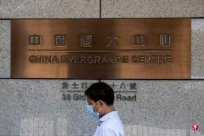Hong Kong Chief Secretary of Law, Lin Dingguo, said that even after the promulgation of the National Security Law, he is confident that Hong Kong will continue to become the primary place for international commercial arbitration and controversy, and continue to flourish.
Lin Dingguo posted on Facebook on Saturday (October 14) to share his experience of attending the "Hong Kong 2023 China Commercial Dispute Solution Settlement Forum", and emphasized that the rule of law is the best business environment.
Lin Dingguo said that in the closing speech of the forum, he deliberately used objective statistics to make everyone understand why he was confident.He introduced that as of 2022, the Hong Kong International Arbitration Center received 515 new cases, of which 344 were arbitration cases, the highest number in 10 years.
Lin Dingguo emphasized that more than half of the arbitration cases involved the contract signed after 2020, which means that even after the promulgation of the Hong Kong National Security Law on June 30, 2020, Hong Kong is still a commercial controversy that attracts investorsSolution.
Lin Dingguo also pointed out that the Hong Kong government has spared no effort in promoting Hong Kong to become the international law and resolving the dispute service center in the Asia -Pacific region.Essence
In addition, in order to facilitate overseas people to participate in the arbitration activities of Hong Kong in different identities, the Hong Kong Government has launched special procedures. Since June 2020, arbitrators, lawyers, experts and arbitration parties from visa -free countries do not need toWhen applying for an employment visa, you can go to Hong Kong to participate in the arbitration procedure; from March this year, the pilot plan will be expanded to all visitors.
Lin Dingguo emphasized that the Hong Kong government will continue to make full use of the unique position and advantages of the "one country, two systems" principles, and strengthen the status of Hong Kong as a service center for international laws and disputes in the Asia -Pacific region.


